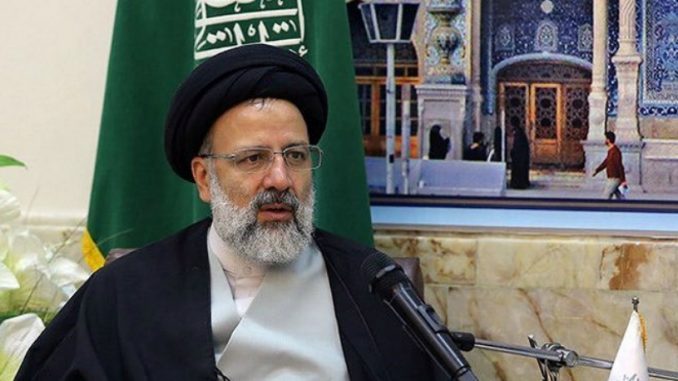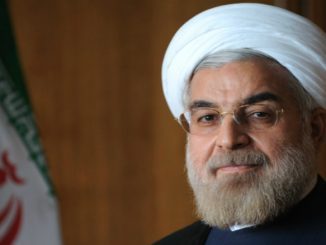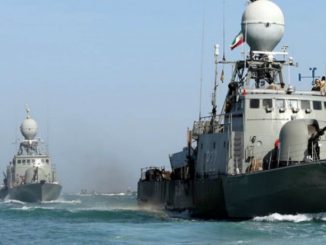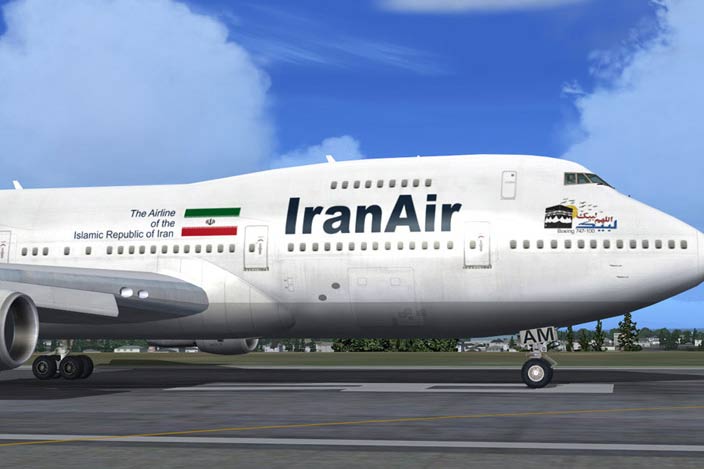
Iranian Shi’ite cleric Ebrahim Raisi seems is most likely to be the hardliners’ choice to compete with moderate President Hassan Rouhani in the next presidential vote in May, as their campaigns are expected to be focused on the economic situation in Iran.
Iran made a historic nuclear deal with P5+1 powers in 2015, in which Tehran agreed to amend its nuclear output in order to lift all nuclear-related economic sanctions, freeing up tens of billions of dollars in oil revenue and frozen assets.
After lifting the sanctions, Iranian president Hassan Rouhani visited Europe and made deals that worth billions of dollars. European companies started looking for investment opportunities in the growing Iranian market.
The Iranian government also sought deals with western companies to develop and maintain its natural resources such as Oil and Gas.
In addition, Iran has made new trade relations with many European countries to widen the Iranian market and help in modernizing the country’s infrastructure and its public transport.
Rouhani won the presidency in 2013 with the backing of mainly of young people and women. He promised to bring Iran out of its international isolation and create a freer society.
But many ordinary Iranians have lost faith in him because he has not been able to improve the economy despite the lifting of sanctions in January last year under the nuclear deal.
Doubts have been cast on whether Hassan Rouhani will be capable of pulling off a victory as he is facing escalating criticizing from his rivals, the hardliners. Will he be Iran’s first one-term president?
Conservative candidates: Raisi
Iran’s powerful hardliners have been gearing up for a showdown in the May 19 vote to end Rouhani role at the borders of its first term and regain the presidency.
Iran’s conservatives announced a shortlist of five presidential candidates on Thursday as they experimented with their first-ever democratic primary in a bid to find a leader to challenge Rouhani.
Analysts say Raisi, thanks to the support he enjoys from Supreme Leader Ayatollah Ali Khamenei, could pose a real challenge to Rouhani’s bid for a second term.
Raisi, 56, is the custodian of Astan Quds Razavi, the wealthiest charity in the Muslim world and the organization in charge of Iran’s holiest shrine. He had barely reached adulthood by the 1979 Islamic revolution but rose quickly through the ranks. In the summer of 1988, he was one of the four sharia judges behind the mass execution of leftists and dissidents. More recently he was Iran’s prosecutor general.
Raisi has faulted Iran’s economic performance under Rouhani and his pursuit of detente that in 2015 yielded a landmark deal with world powers under which Tehran curbed its disputed nuclear program in exchange for the lifting of sanctions.
Raisi said in a statement on Sunday he had been reluctant to seek office but had made the decision to run after he deemed it to be his “religious and revolutionary responsibility”.
“People are asking why despite all our resources and human talents …our country is in this situation,” Raisi said in a statement published by Iranian news agencies.
“The key solution to our problems is the fundamental change in the executive management of the country by the will of the people, and the formation of a competent and knowledgeable government that works day and night to bring back the dignity of the people and fights poverty and corruption.”
If he wins the May 19 vote, Raisi would boost his chances of eventually succeeding Khamenei, who himself served two terms as president under the late founder of Iran’s 1979 Islamic Revolution, Ayatollah Ruhollah Khomeini.



